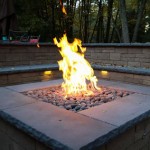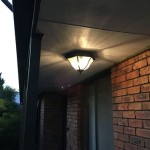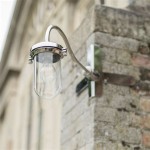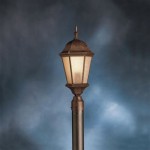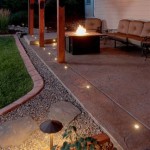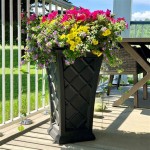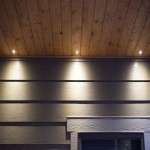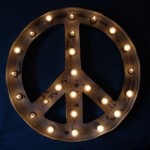What Wire For Outdoor Lighting
When it comes to outdoor lighting, choosing the right wire is essential for ensuring safety, durability, and functionality. Several factors need to be considered when selecting the appropriate wire for your outdoor lighting installation, including the type of lighting, the distance between the power source and the lights, and the environmental conditions.
In this article, we will discuss the essential aspects of choosing the right wire for outdoor lighting, including the gauge, insulation, and type of wire. We will also provide specific recommendations for various outdoor lighting applications.
Gauge
The gauge of a wire refers to its thickness. The thicker the wire, the lower the gauge number. For outdoor lighting, it is important to use a wire with a gauge that is thick enough to handle the current draw of the lights. A wire that is too thin can overheat and become a fire hazard.
The following table provides recommended wire gauges for different types of outdoor lighting:
- Low-voltage lighting (12 volts or less): 18-gauge or 16-gauge
- Line-voltage lighting (120 volts): 14-gauge or 12-gauge
Insulation
The insulation of a wire protects it from moisture and other environmental hazards. For outdoor lighting, it is important to use a wire with insulation that is rated for outdoor use. This will help to prevent the wire from becoming damaged and causing a short circuit.
The following are some of the most common types of insulation used for outdoor wire:
- PVC (polyvinyl chloride): PVC is a durable and inexpensive type of insulation that is commonly used for outdoor wiring.
- XLPE (cross-linked polyethylene): XLPE is a more expensive type of insulation than PVC, but it offers better resistance to moisture and sunlight.
- EPDM (ethylene propylene diene monomer): EPDM is a synthetic rubber insulation that is highly resistant to moisture, sunlight, and ozone.
Type of Wire
There are two main types of wire that are used for outdoor lighting: solid wire and stranded wire.
- Solid wire is made from a single strand of copper. It is less flexible than stranded wire, but it is also more durable.
- Stranded wire is made from multiple strands of copper. It is more flexible than solid wire, but it is also less durable.
For most outdoor lighting applications, stranded wire is the better choice because it is more flexible and easier to work with. However, solid wire may be a better choice for applications where durability is a concern.
Conclusion
Choosing the right wire for your outdoor lighting installation is essential for ensuring safety, durability, and functionality. By considering the factors discussed in this article, you can select the appropriate wire for your specific needs.

Choosing Low Voltage Lighting Transformers Cable And Wire Connectors In Lite Outdoor

12v Low Voltage Landscape Lighting Light Cable Wire Connection Extension Cord Piercing Connector China Made In Com

Newhouse Lighting 48 Ft String Light Hanging Mounting Kit Wire Hooks Stringkit The Home Depot

Outdoor Low Voltage Lighting Diy Family Handyman

2 Pack Led Outdoor Light Fireworks Lamp Sparklers Copper Wire 8 Lighting Modes Wedding Garden Footpath Decorations Park Decoration120led China Solar Firework Caution Made In Com

Newhouse Lighting 48 Ft String Light Hanging Mounting Kit Wire Hooks Stringkit The Home Depot

Landscape Lights Not Working Solutions To 7 Common Problems

Outdoor And Backyard Lighting We Love Reviews By Wirecutter

How To Install And Wire Outdoor Light Fixtures Easy Home Diy Project

Dripstone 250ft Low Voltage 12awg 2core Outdoor Ubuy
